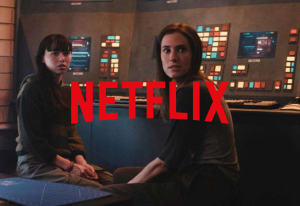Sylvester Stallone’s John Rambo is an American movie icon, whose relevance stems all the way back to the nation’s post-Vietnam War traumas. Since that time, Rambo has been an effective symbol of America’s evolving military might, from the Cold War era to modern concerns about human atrocities in war-torn nations, or in the case of the latest film, the dark world of drugs, violence, and human trafficking within the world of organized crime and cartels of Mexico. Unfortunately for Rambo: Last Blood, the iconic character fails entirely at being an effective metaphor for America’s current tensions over the southern border or even as a bittersweet character study about an old warrior entering a new battlefield. Instead, Last Blood sends Rambo off into the sunset with a woefully bad hodge-podge of embarrassingly lame drama and over-the-top torture-porn style brutality.
Videos by ComicBook.com
The “story” (as it is) finds John Rambo living in Bowie, Arizona on his father’s horse ranch, which he keeps going with help of old friend Maria Beltran (Paz Vega) and her granddaughter Gabrielle (Yvette Monreal), a premise that Wikipedia thankfully explains much more effectively than the actual movie. Gabrielle is heading off to college soon, but the young girl has one last desperate wish beforehand: going to Mexico to confront her estranged father. Headstrong Gaby takes the journey, despite Rambo and Maria’s repeated objections, and that’s where things go very, very wrong. Gabrielle’s reunion with her dad is a bust, and a night out with her cousin ends with the girl being abducted by a local cartel that specializes in human trafficking. When Rambo learns what’s happened, he heads into Mexico ready to make the streets bleed, but the old war dog quickly finds out that he may have stepped into the one fight even he isn’t strong enough to win.
Director Adrian Grunberg gave Mel Gibson’s career a nice shot in the arm with his Mexico-based action-drama Get the Gringo, but with Last Blood, he bites off way more than he can chew. Grunberg doesn’t get a single element of this film right in any interpretive sense. The family drama at the start is bizarre, as its origins and importance are never fully, or even partially, fleshed-out or explained. The fatherhood drama that Rambo goes through during the course of the film is laughably bad and cheesy, as Stallone (who has already delivered a Golden Globe-winning performance as “Old Man Rocky” in Creed), can’t seem to hit anywhere close to the emotional target of an aging warrior trying to hold on to something pure and good in his violent life. Stallone’s scenes with Monreal are so hard to watch that the film’s emotional core all but implodes in the pivotal moment where it’s supposed to pull at the heartstrings the most.
What we’re left with is an orgy of violence, and not particularly exciting violence, at that. If you were an action movie fan who hates quick cuts and “shaky cam” filming style, then you will hate Last Blood. Most of the action that occurs is blurred and incomprehensible in execution. The action sequences simply show us nameless henchmen, who then have some kind of blurred encounter with the hulking shadow that is Rambo, only to end up in a horrific kill shot that puts this film on the level of gratuitously violent horror films like Saw or Hostel. Logistically, it makes little sense, and cinematically it offers little to no action thrills, as Rambo is always stepping out of the nearest shadow for a conveniently easy, and excessively brutal, encounter with no explanation of how he’s able to move place to place or avoid harder struggles with these insidious killers. In fact, the movie’s entire oscillation is contradictory, as Rambo is depicted as a militarized Michael Myers by the final act, while the first two acts try to build the case that Rambo is suffering some kind of mental and/or physical deterioration — a plotline which goes nowhere. It’s such a mismatch of narrative and tones that Rambo ends up feeling like a total structural failure; a movie yanked out of the editing bay and thrown up on screen well before a polished final draft, or even coherent draft, could be made. It’s a travesty for any movie to end up in such a state — it’s a downright tragedy to see it happen to Rambo.
Finally, if you’re still hoping that Last Blood will still be enjoyable on the level of 2008’s Rambo, with its buildup to an orgy of blood and gore, don’t be fooled. Stallone’s directorial work actually held Rambo together despite its cartoonish violence, while Stallone’s sappy performance as a haunted man trying not to let the monster back out could be enjoyed with delicious winking irony. Last Blood offers no room for humor, intentional or not, and is drab, depressing, and wholly disappointing. Do yourself a favor: just rewatch Rambo and tell yourself the franchise ended there to spare yourself the PTSD.
Rating: 1 out of 5
Rambo: Last Blood is now in theaters.








